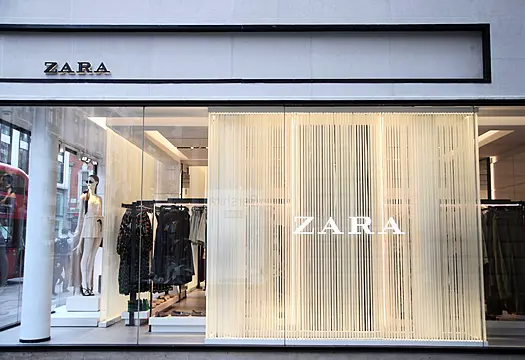The retail giant behind Zara has revealed strong sales ahead of Christmas as its autumn/winter collection was “well received” by shoppers.
Inditex, which also runs the Bershka and Pull & Bear brands, said on Wednesday that sales increased by 14 per cent over the six weeks to December 11th.
It came as the Spanish fashion group, which operates 5,722 shops globally, revealed earnings in line with forecasts improved its margin outlook for the year.
The retailer said margins for 2023 are due to be 0.75 percentage points higher than in 2022 after the firm reduced inventory and saw supply chain pressures ease.

However, Inditex revealed a slowdown in sales over the latest full quarter.
It told shareholders and analysts that sales grew by around 7 per cent to €8.8 billion over the three months to the end of October.
The sales growth represented a notable slump after a 16 per cent increase in the second quarter.
It came as rivals have previously cautioned that warmer weather over the period dented demand for some winter items, such as coats.
In a statement, the company said: “Inditex continued with a very robust operating performance due to the creativity of the teams and the strong execution of the fully integrated business model.
“The autumn/winter collections have been very well received by customers.
“Sales were positive in all geographical areas and in all concepts.”
Victoria Scholar, head of investment at interactive investor, said: “This is a mixed set of results from Inditex which has struggled with slower sales driven by unseasonably warm weather.

“However, the group is currently enjoying a pick up in demand during the all-important golden quarter for retail, thanks to strong demand for Christmas presents which should help to support its full-year profit margin.
“Inditex has been successfully navigating the pressures from a weak consumer and sluggish economic backdrop, outperforming rival H&M.
“But despite its intelligent pricing and inventory strategy, it is not immune to these headwinds which are starting to show up in terms of weaker revenues.”







